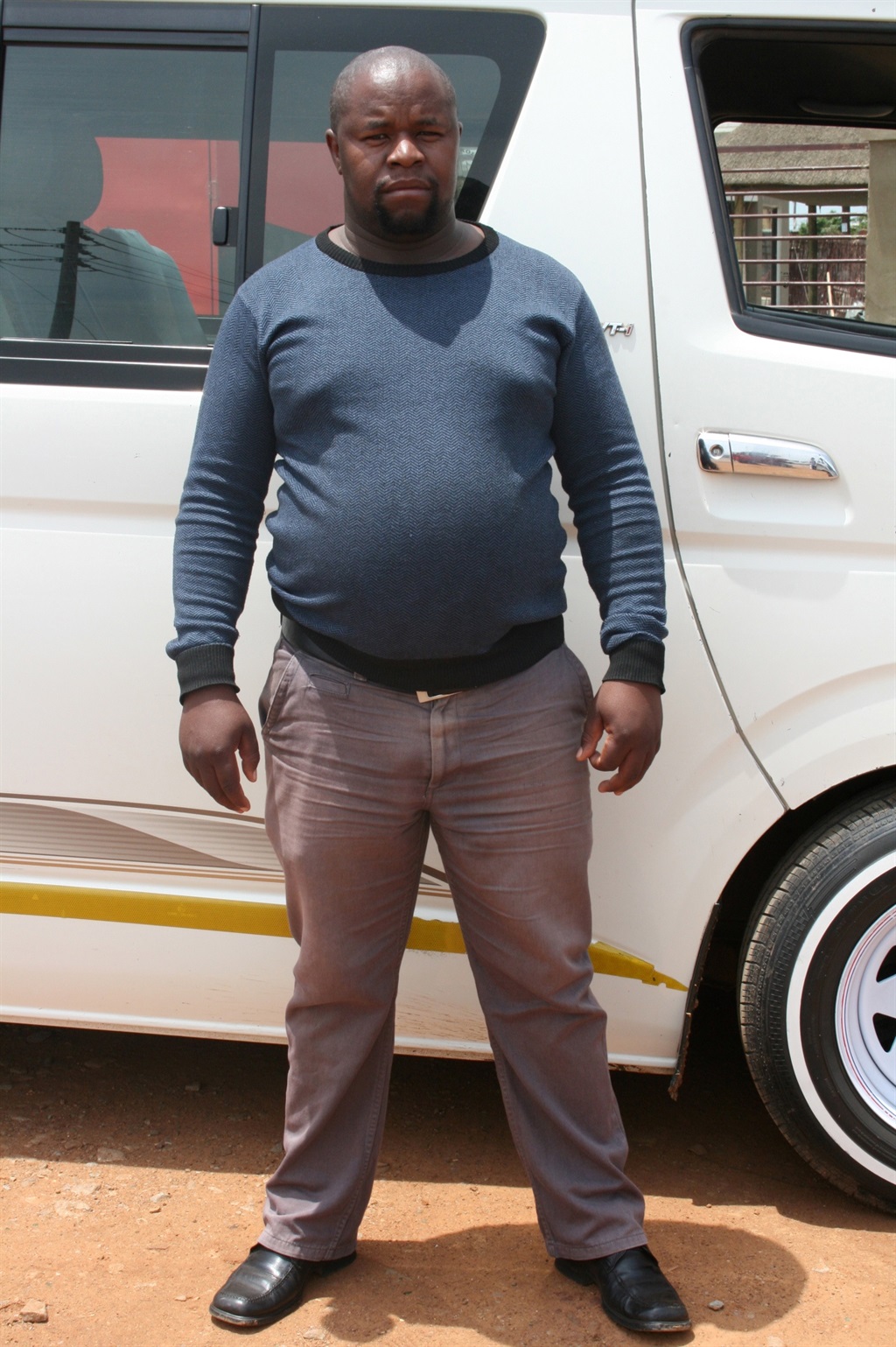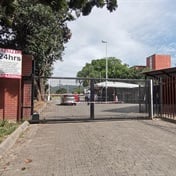
It is just after 9am at Duduza Extension 15’s taxi rank on a sunny day, and Bafana Ncongwane has just finished up his early shift through rush-hour traffic. His morning trips are done, and so he spends time sitting in his white Quantum in a queue at the taxi rank waiting for his vehicle to fill up with the next load of passengers. It’s a bit of downtime that he uses to rest and get something to eat.
Ncongwane lives in Duduza, 53 kilometres east of Johannesburg, and has been driving taxis for the past 10 years.
“It is hard to wake up in the morning because I am always tired. But I push myself to go to work. When I get to work I find the taxi ready for me.”
His day starts at 3am. By 4am he is already at the taxi rank. He finally gets home at 10pm.
Ncongwane says he doesn’t enjoy driving taxis.
“It is because there are no jobs out there, and here I get money every day so that I do not suffer too much.”
Ncongwane doesn’t eat before his dawn departure from home, so has breakfast at the rank after his first load of morning trips.
He walks to the nearby spaza shop and orders Coca-Cola and vetkoek (fried dough). It’s the meal he enjoys every day.
“Coke doesn’t give me energy, but it makes me focus on my driving every time I take a sip.”
According to Dr Anniza de Villiers, a senior scientist at the non-communicable diseases research unit at the South African Medical Research Council, it is the caffeine in the drink that causes the alertness, and not the sugar. She said taking in too much sugar was more likely to lead to a sugar or glucose crash.
“This is the fatigue [extreme tiredness] a person feels after consuming a large quantity of carbohydrates makes them feel tired and irritated. He could also feel anxious, lightheaded and confused,” she said, explaining the effects of a meal of vetkoek and Coca-cola.
But Ncongwane believes in his fizzy drinks, and consumes about 1.25 litres of Coca-Cola every hour at the taxi rank every day.
“When I go to Springs, I buy a cold drink. When I come back, I buy another cold drink.”
He said when he gets back to the taxi rank and finds other drivers enjoying cold drinks, he joins them.
“And the other driver will come and buy, that is how we drink our cold drink here,” Ncongwane says, pointing to others at the rank.
But he knows that consuming so much sugar is not good for him.
“The sugary drinks are not right for us, because we sit too much, we travel long distances. We must drink water, because that helps clean our kidneys.”
He added that the food sold at taxi ranks is also unhealthy, sometimes to the point of upsetting his stomach.
De Villiers said “It has been shown that caffeine improves reaction time, vigilance and logical reasoning during extended periods with restricted opportunities for sleep. However, taking it in the form of sugar-sweetened beverages is not recommended.”
She added that a moderate intake of caffeine is advised – for example 300mg per day. A 500ml bottle of coke will provide 50mg of caffeine and this quantity should not carry any health risk.
She added that when a higher intake of caffeine is required, drinking tea or coffee with milk (and without sugar) could be considered.
According to De Villiers, an unhealthy dietary pattern combined with low physical activity is very detrimental to people’s health and could lead to early death.
“It would be wise if [taxi drivers] could consider adding fresh fruit and vegetables to their diets and playing some ball games or doing some kind of physical exercise while waiting for their next group of passengers.”
The World Health Organisation’s new guidelines on sugar intake for adults and children recommends a reduced intake of free sugars throughout life. In both adults and children, the intake of free sugars should be less than 10% of total energy intake. A reduction to below 5% of total energy intake would provide additional health benefits.
Sugar in Your Drink by CityPress on Scribd
The recommendations are based on an analysis of the latest scientific evidence. This evidence shows, first, that adults who consume less sugar have lower body weights. Body weight is increased when sugar is added to the diet. In addition, research shows that children who drink a lot of sugar-sweetened drinks are more likely to be overweight or obese than children who drink a small amount of sugar-sweetened drinks.
The recommendations are supported by evidence showing higher rates of dental caries when the intake of sugar is above 10% of total energy intake than in those whose intake is below 10%.
The national health department recently stated that obesity rates in South Africa are increasing rapidly, with almost 70% of women and 40% of men either overweight or obese.
Reports show that one in four girls and one in five boys between the ages of two and 14 years are overweight or obese while obesity-related diseases such as heart diseases, type 2 diabetes, stroke and some cancers account for 43% of deaths in South Africa. Obesity ranks among the top five risk factors for early death.
South Africans are among the top 10 consumers of soft drinks in the world. In addition, the market for soft drinks more than doubled between 1998 and 2012. Young adults (15 to 24 years old) are high consumers.
Sugary drinks have no nutritional value but the average 500ml fizzy drink contains about 10 spoons of sugar.
The government plans to tax sugary drinks according to how much sugar they contain. Research shows that a 20% tax on sugary drinks will reduce obesity by 3.8% in men and 2.4% in women, resulting in 220 000 fewer obese adults.
South Africans can take charge of their health and switch from drinking sugary drinks to water. – Health-E News
Video produced by Kyla Herrmannsen (Health-e News)




 Publications
Publications
 Partners
Partners








